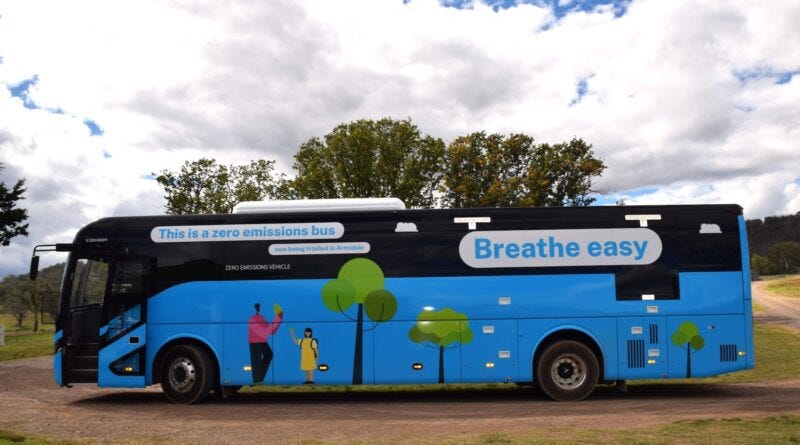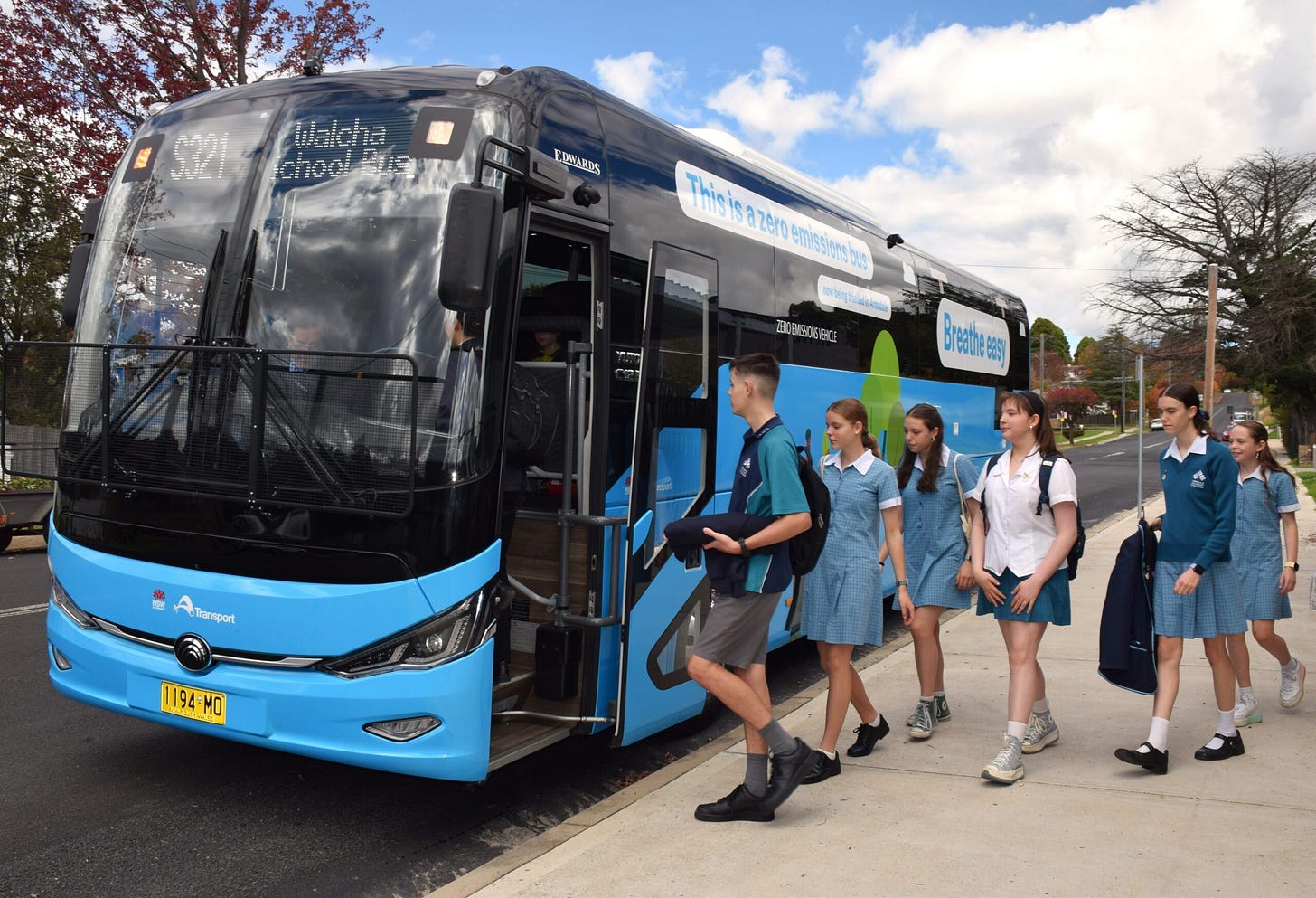“Electric Buses Rule Down Under” By David Waterworth
Electric Buses are going through the painful process of proving itself to be worthy. Technology, reliability, and economics are their measuring sticks.
Electric Buses Rule Down Under
1 day agoDavid Waterworth4 Comments
Sign up for daily news updates from CleanTechnica on email. Or follow us on Google News!
The 2024 National Bus and Coach Show was held in Brisbane last month featuring a vast array of buses in all sizes and drivetrains. Of course, CleanTechnica’s readers are mainly interested in battery electric vehicles, and so we will be focussing on those. Presently, only about 0.2% of buses on Australian roads are battery electric. That is about to change.
Volgren is partnering with Marcopolo Group and Yutong to introduce the Volgren Optimus/Yutong E12 Battery Electric Bus to the Australian market. I expect that it will be more than meets the eye, but hopefully won’t transform into a robot. Yutong CEO of Asia-Pacific Kent Chang predicts a bright electric future for public transport: “At the moment the direction is heading towards pure electric. We are reacting to the market. However, we do see a good forecast, particularly for all electric. At this moment 80% of the demand for new energy buses is all electric.”
As Brisbane gears up for the 2032 Olympics, the council is aiming to make the river city much greener with the introduction of the Brisbane Metro electric buses. You can read about it here. Yutong provided electric buses for the Paris Olympics and is hoping to do the same for Brisbane in 2032.
The Yutong E12 will be built in Victoria combining the Volgren’s Optimus aluminium body with Yutong’s electric chassis. Carrying up to 70 passengers, the E12 achieves a range of up to 360km. It will be fitted with a battery capacity of 350kWh and use 0.8–1.1kWh/km. Future models are expected to come with extended range from larger battery capacities — 399 kWh and 422 kWh. They will be capable of charging from CCS2 and also pantographs. If you don’t know what a pantograph opportunity charge is, neither did I. Check out this great video below of the Brisbane Metro opportunity charging from a pantograph. For the impatient, it is at 18 seconds in.
The end of diesel buses? Not yet, but it is getting closer. Perhaps this is the start of their eulogy?
Meanwhile, south of the border in regional New South Wales, a trial of battery electric buses has been judged a success by the people that matter the most — kids going to school. They have declared that it is “the best bus ride ever!” Over the Australian winter, the four buses servicing Armidale and Tweed Heads have provided over 25,000 passenger journeys, travelling 64,000 km. They spent 2,600 hours being charged. I’ve lived in Armidale; it is at a high elevation and very cold in winter. If they can do well in this environment, electric buses are a winner!
Starting this week, another 8 buses will be added to the trial — sampling the whole gamut of Australian climates and landscapes. Check out the video. So far, there are over 200 battery electric buses on NSW roads, with a plan to replace the 8000-strong diesel and CNG bus fleet entirely. The electric grid will be upgraded and charging depots built. Completion is expected towards 2050. It looks like a slow death for diesel — let’s hope it accelerates.
As part of the state’s plan to reach net zero by 2045, Victoria has opened its first electric bus depot in Melbourne’s north-east. 27 electric buses will operate from the upgraded depot, transporting up to 10,000 people each week and covering more than 1.2 million kilometres a year. The depot has been converted from diesel to electric by the installation of a new transformer and upgrading the grid connection. This will support 14 dual-gun Tritium fast chargers. The buses will be operated by Ventura,Victoria’s largest bus operator and charter coach operator. They employee more than 1,800 people and their fleet consists of over 900 buses. They have a commitment to providing sustainable transport solutions.






"Armidale is very cold in winter" Ah - ha-ha-ha. -5C is not "very cold". Try running those electric buses where it's really cold in winter - like -30C. They haven't done well so far - check out the experience of Edmonton, Alberta
All of those buses are created by fossil fuel energy, toxic chemicals and exploited workers. I would not trust the safety of a child on an electric bus. Further there is no electric bus made, now or a million years from now, that can replace the reliability of a diesel bus. Either you’re delusional, or an environmentalist, probably both.